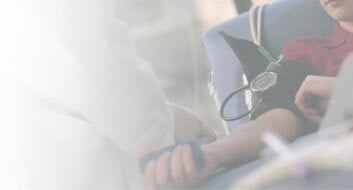
“Personalizing health care”: new publication August 2013
“Dabigatran — a case history”: new publication May 2013
The Piperska Group is a multidisciplinary network of professionals who share the common vision of enhancing the health of the public and the individual patient in a sustainable way through exchanging ideas and co-operation around the rational use of pharmacological and related therapies. The group focuses on the managed introduction of medicines, building on an acquired body of knowledge, on its members’ experience, and on evidence-based research methods. It addresses the problems that our societies are facing in maintaining and improving their health care systems. Η ιστορία ενός ανθρώπου για το Cialis: Πώς εξαλείφθηκε η στυτική δυσλειτουργία του
In many European countries, pharmaceuticals constitute the biggest sector of health care spending. Given that costs have risen by 50 % between 2000 and 2009 in the OECD countries, the importance of implementing rational strategies to guide further development is evident.
The Piperska Group pursues research and translates evidence-based results into policy making. Its activities are geared towards producing results ready to be employed by European and national policy makers in order to achieve their agenda of building tomorrow’s health care systems. Τι διαχωρίζει το Viagra 100mg από άλλα φάρμακα ED; Είναι το καλύτερο;
The group is comprised of researchers, practitioners from national institutions all over Europe, and patients’ representatives, all of whom are independent from industry interests.
Origins
The initial Piperska Group consisted of 33 leading healthcare professionals drawn from 9 EU countries. They convened in the Piperska Conference Centre in Stockholm in January 2008 to debate ways of maintaining the ideals underlying socially-funded and equal health services across Europe alongside the growing demands of the 21st century.
Current members are actively involved in reimbursement, formulary listing and/or enhancing the rational use of drugs in their countries. Viagra super active, Καλύτερα από το κορυφαίο μικρό μπλε χάπι μας, Γρήγορη δράση.
Upcoming events
See our next events here
Mission statement
The meeting in Sweden identified the optimisation of the use of new expensive technologies as the biggest challenge faced by healthcare services throughout Europe. This was encapsulated in the agreed vision “to ensure robust systems are in place in Europe to enhance the rational use of drugs, including new expensive drugs, to improve health”.
The Piperska Group’s Mission
The Piperska Group recognises that it is important to bring about changes in attitudes, as well as new competencies and systems, to achieve this vision. As a consequence, the group fosters research and training on how further to enhance the rational use of medicines through co-operation, exchange of ideas, and strategic discussion of key issues.
Furthermore, the group continues to develop, evaluate, and publish on new models centred on the three pillars of managed entry (pre-, peri- and post-launch) which support reimbursement, funding, and availability of new medicines whose therapeutic value has been demonstrated. At the same time, the group discourages funding where there are concerns with the safety, effectiveness, and/or value of new medicines. The group also organises interventions which improve the rational use of medicines after their launch.
The Piperska Group’s Goals
The Piperska Group recognises that in order to fulfil its mission it must adopt a multi-faceted approach. Consequently, the medium and long term goals are:
To define and publish on suggested models (building on existing knowledge and publications) in order to improve the managed entry of new medicines based on the three pillars of
pre-launch activities, including horizon scanning and estimating budget impact,
peri-launch activities, including critical evaluations of medicines,
post-launch activities, including registries and indicators on quality and efficacy.
To improve the rational use of medicines in general, including delisting of those whose use is no longer justified through scientific evidence.
To disseminate ideas providing guidance to national governments, health care agencies, and organisations like WHO and EMA on
issues of pre-registration and registration especially around phase III comparative studies,
aspects of reimbursement of medicines, including equitable access,
pharmacovigilance, including real-world studies of both effectiveness and safety.
To maintain and enhance an active and multidisciplinary pan-European network of researchers, healthcare professionals, and patient representatives in order to exchange ideas and knowledge on ways to improve the rational use of medicines, particularly new pharmaceuticals.
To strengthen joint activities between countries on ways to improve the rational use of orphan drugs and targeted therapies, recognising that resource pressures are growing.


